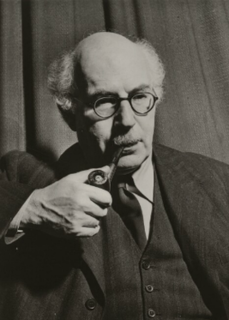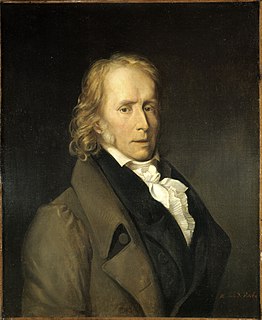A Quote by Lord Byron
He who grown aged in this world of woe, In deeds, not years, piercing the depths of life, So that no wonder waits him.
Related Quotes
Woe to him whom this world charms from Gospel duty. Woe to him who seeks to pour oil upon the waters when God has brewed them into a gale. Woe to him who seeks to please rather than to appal. Woe to him whose good name is more to him than goodness. Woe to him who, in this world, courts not dishonor! Woe to him who would not be true, even though to be false were salvation. Yea, woe to him who, as the great Pilot Paul has it, while preaching to others is himself a castaway.
For, owners of their deeds (karma) are the beings, heirs of their deeds; their deeds are the womb from which they sprang; with their deeds they are bound up; their deeds are their refuge. Whatever deeds they do-good or evil-of such they will be the heirs. And wherever the beings spring into existence, there their deeds will ripen; and wherever their deeds ripen, there they will earn the fruits of those deeds, be it in this life, or be it in the next life, or be it in any other future life.
The wonder is not that there should be obstacles and sufferings in this world, but that there should be law and order, beauty and joy, goodness and love. The idea of God that man has in his being is the wonder of all wonders. He has felt in the depths of his life that what appears as imperfect is the manifestation of the perfect.
What is patriotism? Is it love of one's birthplace, the place of childhood's recollections and hopes, dreams and aspirations? Is it the place where, in childlike naïveté, we would watch the
passing clouds, and wonder why we, too, could not float so swiftly? The place where we would count the milliard glittering stars, terror-stricken lest each one "an eye should be," piercing
the very depths of our little souls?
We had entered an era of limitlessness, or the illusion thereof, and this in itself is a sort of wonder. My grandfather lived a life of limits, both suffered and strictly observed, in a world of limits. I learned much of that world from him and others, and then I changed; I entered the world of labor-saving machines and of limitless cheap fossil fuel. It would take me years of reading, thought, and experience to learn again that in this world limits are not only inescapable but indispensable.
Song in the Manner of Housman" O woe, woe, People are born and die, We also shall be dead pretty soon Therefore let us act as if we were dead already. The bird sits on the hawthorn tree But he dies also, presently. Some lads get hung, and some get shot. Woeful is this human lot. Woe! woe, etcetera.... London is a woeful place, Shropshire is much pleasanter. Then let us smile a little space Upon fond nature's morbid grace. Oh, Woe, woe, woe, etcetera.






































